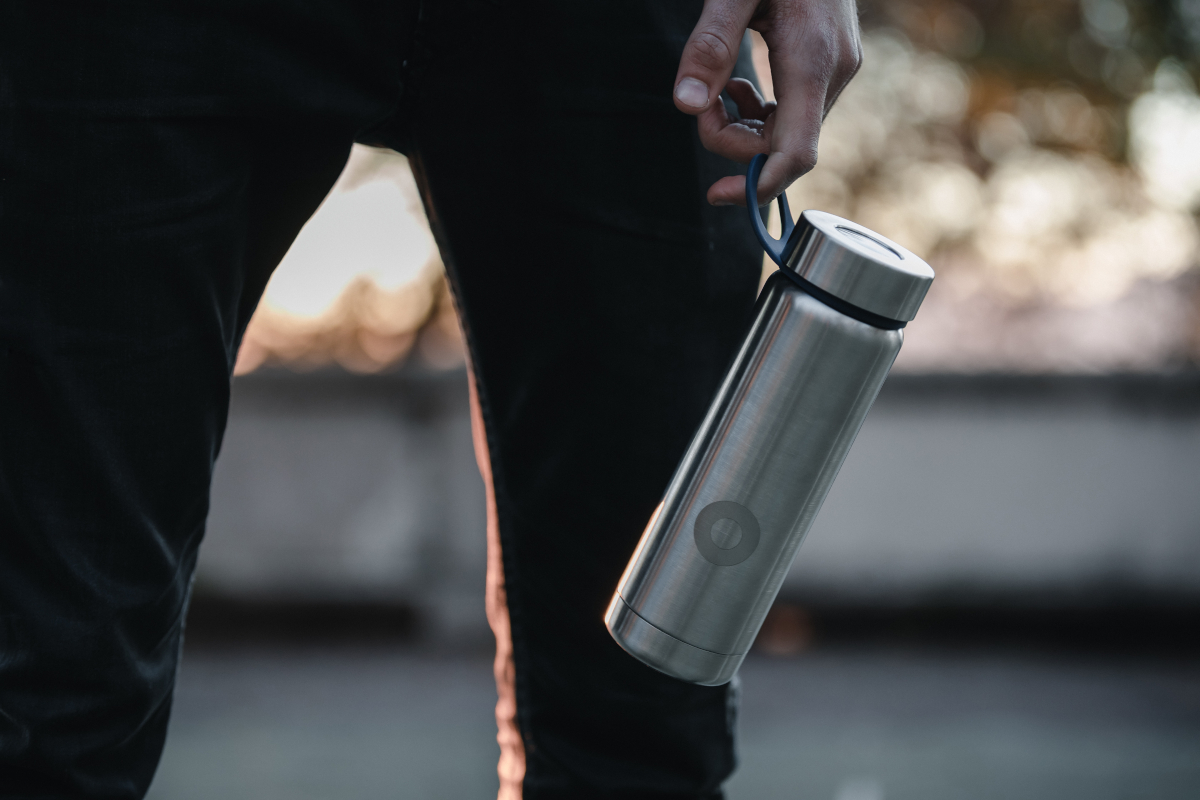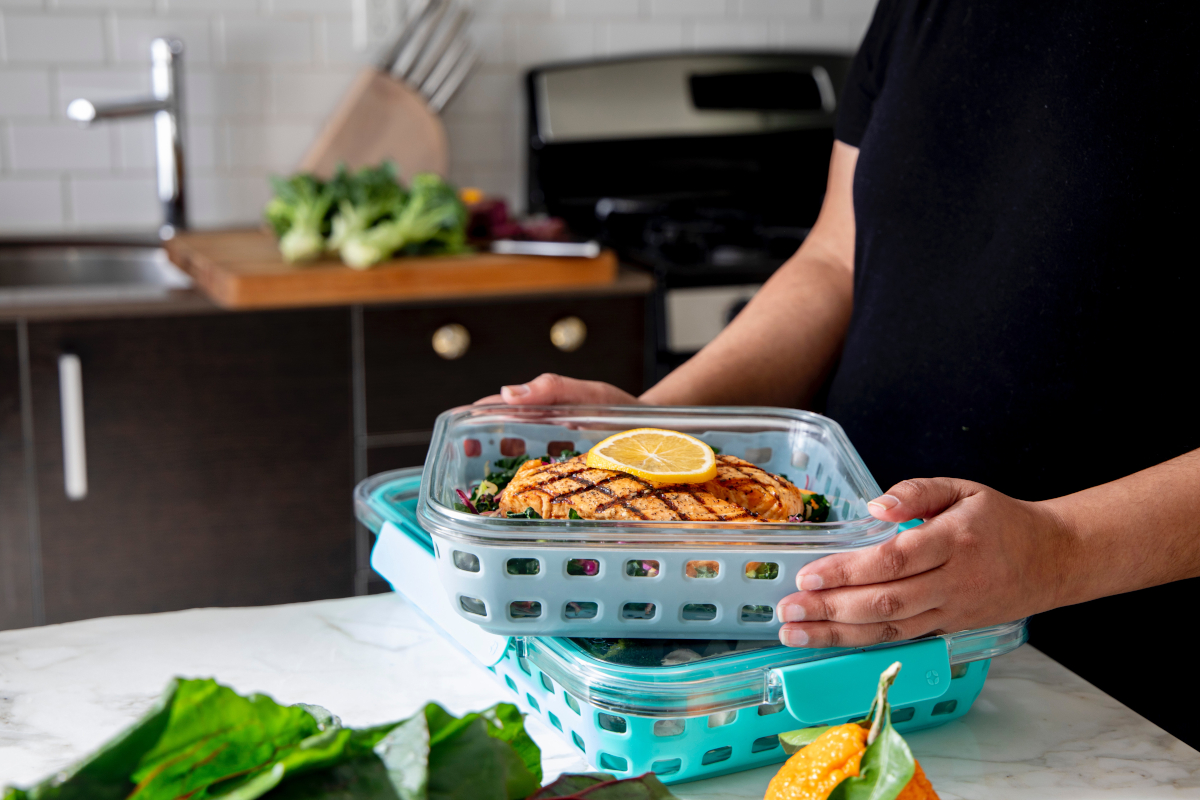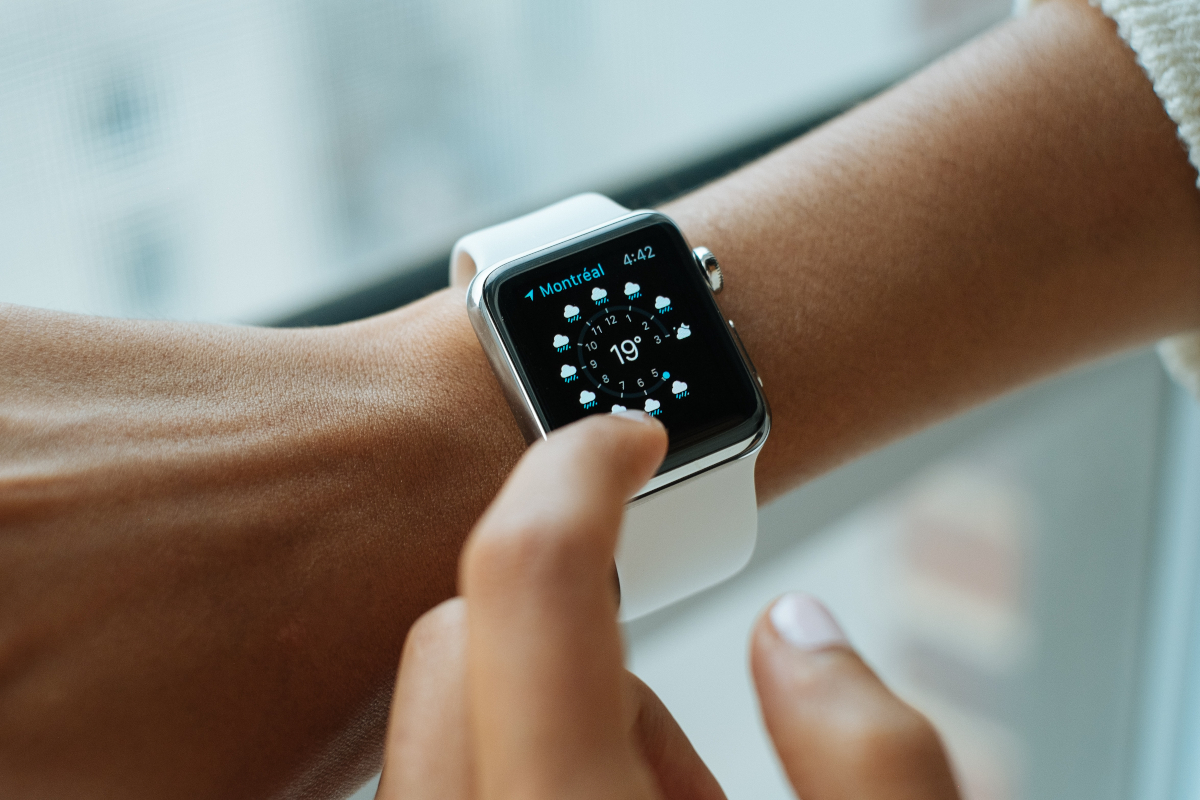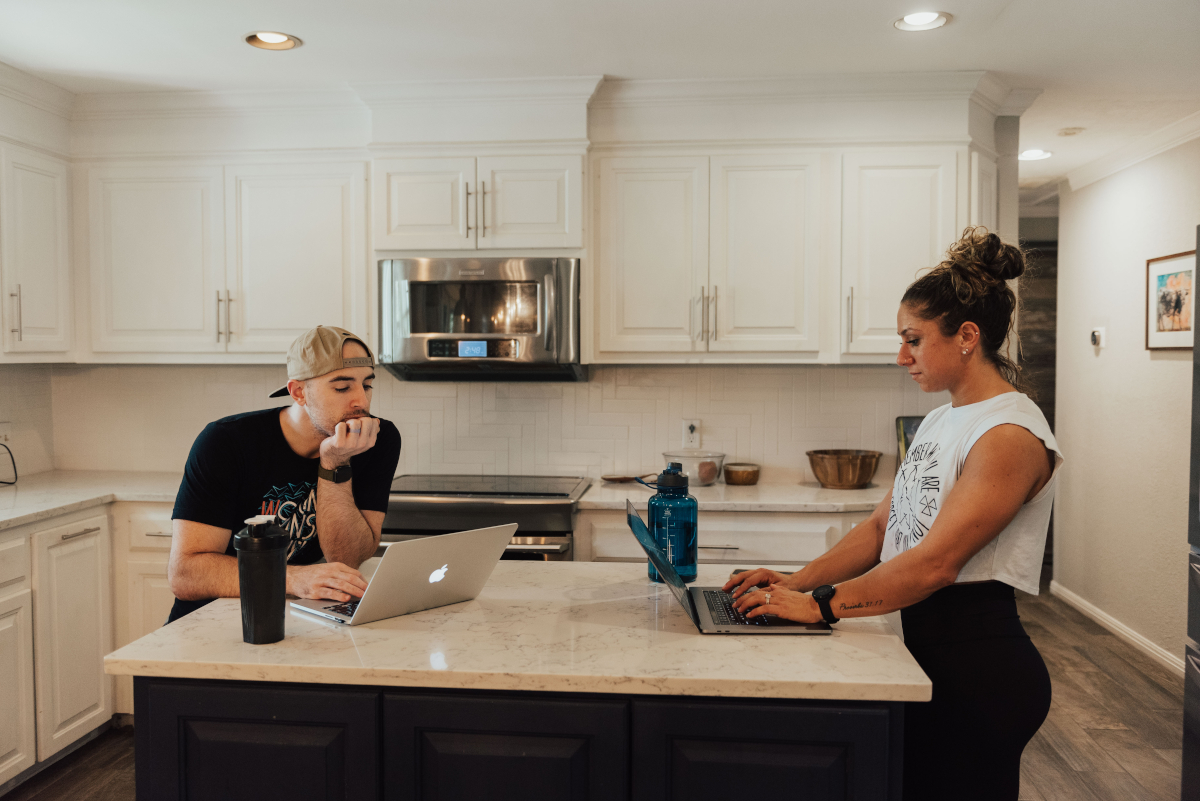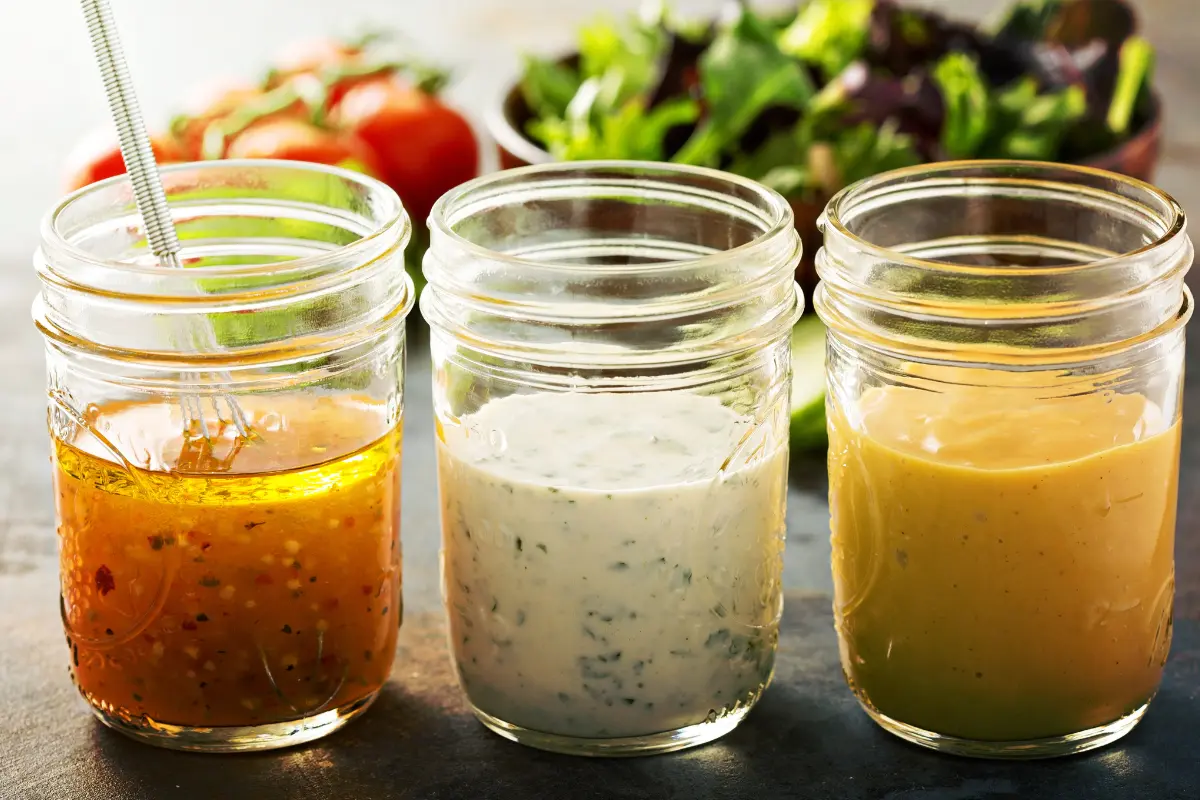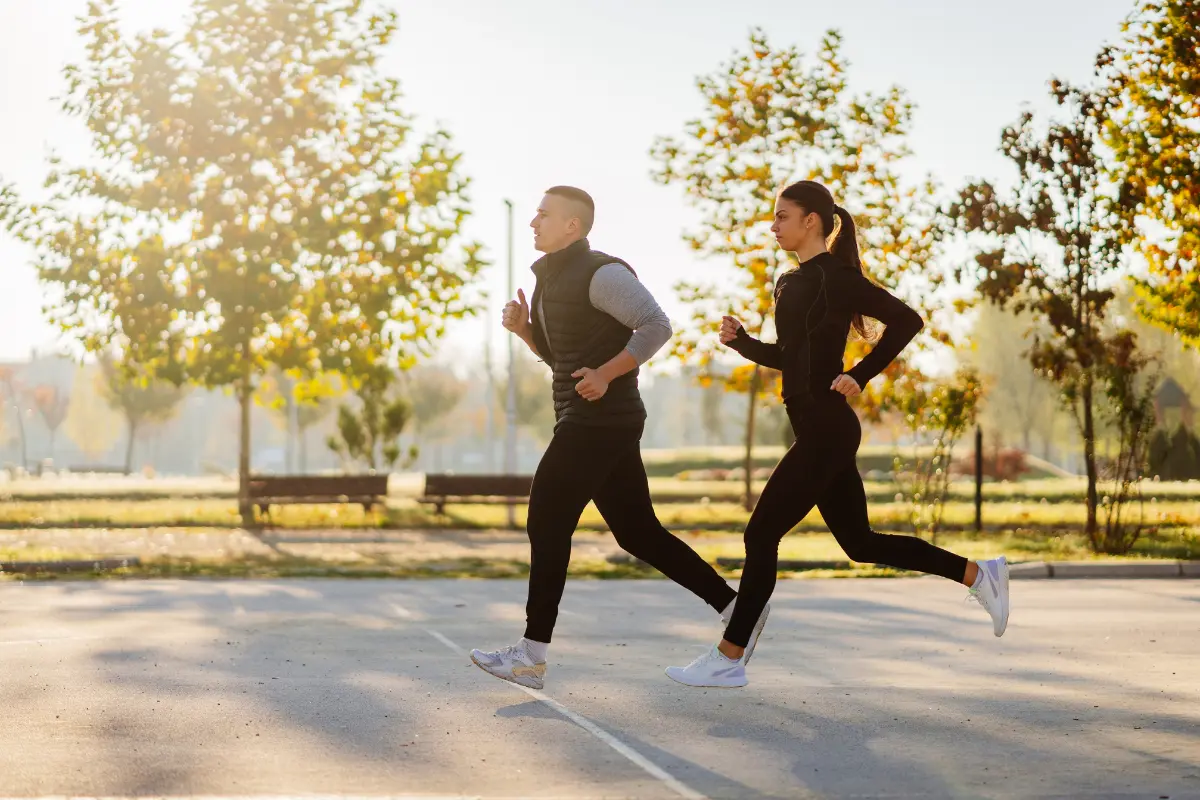
You started working with an online nutrition coach! Awesome! You are pumped, excited, a bit anxious, and ready to make the most of this journey.
How can you get the most out of your time with your online nutrition coach? What should you be talking about with him/her? How do you ensure you squeeze out every ounce of knowledge during this time and create an effective experience? What is the secret!?
The secret is simple – be honest, be open and be curious.
That sounds great, but what does that actually look and sound like? Let’s explore the 10 best things to share with your nutrition coach.
Drumroll, please…
Advertisement

How Does Sleep Impact Weight Loss?
Sleep might sound completely unrelated to what food you eat and how that food impacts body composition or athletic performance. In reality, sleep and nutrition go together like peanut butter and jelly. Share your sleep quality and quantity with your online nutrition coach.
Why do you need to mention your 2-year old keeping you up at night, a stressful night of sleep or your work schedule changing?
How Does Sleep Impact Performance?
For starters, sleep affects how your body behaves day-to-day. String together a few awesome days of sleep and your body will perform and function better both inside and outside of the gym.
String a few sleepless nights and your body will give you feedback that will undoubtedly affect your nutrition: mood swings, cravings, low energy, etc.
Advertisement
Getting less than eight hours of sleep has been shown to…
- Decrease time until physical exhaustion
- Reduced aerobic output
- Cause decreases in peak and sustained muscle strength
- Impair cardiovascular, metabolic and respiratory capabilities
- Cause faster rates of lactic acid build-up [1].
Lack of sleep also negatively impacts growth hormone which is a key hormone in muscle recovery and also increases cortisol (stress hormone) which impacts recovery and immune system health [1].
These obstacles will almost surely affect your ability to make the progress you want to see in the gym.
Sleep and Weight Loss
Beyond that, sleep influences appetite regulation and impairs glucose metabolism [2]. When you’re hungrier, this tends to lead to more overeating which makes it more likely you’ll gain fat.
Lack of sleep can also trigger inflammation which puts you at an increased risk of things like high blood pressure, dementia, and stroke [2]. The bottom line is sleep is important to your overall health and progress.
Advertisement
Your nutrition coach can help you create sleep habits and boundaries based on your schedule and lifestyle. creating a relaxing nighttime routine to help you rack up those REM and deep sleep hours our body needs to function well.
Make the quantity and quality of your sleep a topic during your check-ins. This is a powerful metric that your coach needs to know about.
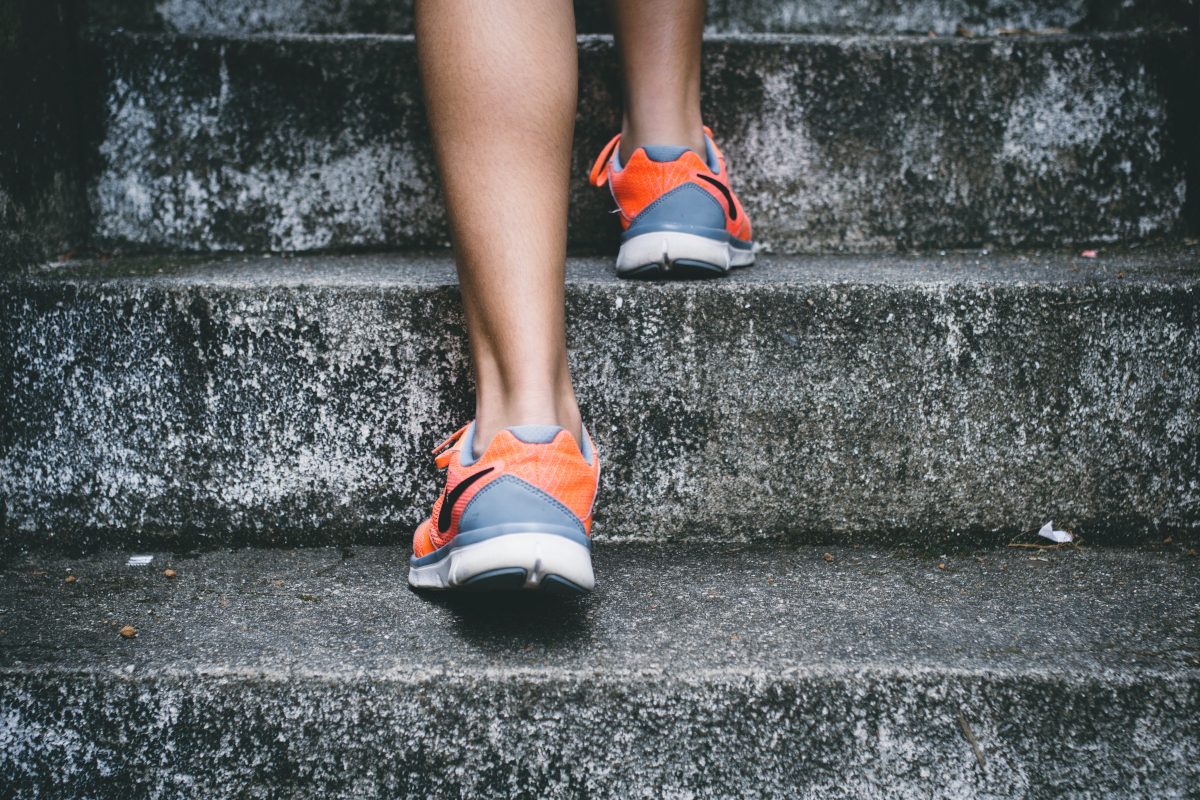
Exercise and Fat Loss
Your online nutrition coach can glean a lot from a peek into what you are up to in the gym.
Whether you are a runner, cyclist, CrossFitter, yogi, or bodybuilder… your coach wants to know what your movement looks and feels like.
Advertisement
At WAG Nutrition, we personalize a plan for you… and one of the main variables we take into account is how much activity and what type of exercise you are getting on a daily basis.
We then use this information to inform our macro calculations and ensure you are eating enough to support your energy output. Here are some prompts to help you out:
- What type of exercise are you doing?
- How often are you working out?
- Are you staying consistent with this week-to-week?
- Has your type of exercise or quantity of exercise decreased or increased lately?
- What does your movement look like outside of the gym? (Ex: do you sit at a desk all day? Do you do manual labor at work? Do you go for walks at lunch?)
These details are important for many reasons. First, your nutrition plan will most likely change if and when your routine or goals around exercise and activity change.
Let’s look at an example…
You are training for a marathon. You are putting in serious miles every week and you have a goal time in mind you’re aiming for!
Advertisement
This level of activity is going to require a corresponding amount of fuel to support it (hello carbs!). You train for three long months; you run your marathon (yay!) and are now “over the whole running thing”... at least for a bit. You switch up your exercise goals and commit to a 12-week yoga and strength-training program to build some muscle and improve your overall mobility. It is crucial your coach is aware of this change so they can adjust your nutrition plan and ensure it supports your day-to-day lifestyle.
As your goals change, your day-to-day life also changes. As your day-to-day changes, your nutrition plan might need a tweak or two as well.

How Does Stress Impact Fat Loss and Nutrition?
Stress plays a big role in our nutrition. It plays a role in energy (to meal prep or train?), motivation, hormonal health, water retention, and even the way your body utilizes the nutrients you give it.
It’s important to make sure your coach is in the know when you’re experiencing higher stress levels. You don’t have to tell them your deepest darkest secrets or dig into the stressors themselves if you’re not ready, but at least keeping them in the loop that stress has shifted will go a long way. As you and your coach build a deeper relationship you may find it easier to be open and vulnerable.
Advertisement
How to Manage Stress
Stress is a part of life. This is why learning how to manage stress as part of your nutrition plan is so important to long-term success. It can look like adding in mindfulness practices, setting boundaries, managing sleep routines and more.
Leverage your coach to explore and develop strategies to navigate everyday life and the stress that comes with it.
How Does Nutrition Impact Energy Levels?
How are your energy levels throughout the day? What about during your workouts?
These are questions you should be asking yourself and talking with your coach about. If you are noticing low energy spells in the afternoon – talk to your nutrition coach! They can guide you through some meal timing options and strategies to address this. If you are going into your workouts feeling super fatigued, maybe it is time to tweak your plan a bit or discuss pre-workout nutrition in a bit more detail.
Advertisement
Talk to your coach! If you do not communicate with them, how will they know that you are struggling?
Why is Hydration Important?
Why is water an important thing to talk to with your coach and stay on top of?
Hydration and Weight Loss
Every cell in your body needs water to work effectively. Water helps regulate your body temperature and is essential for your organs to function properly and body systems to run smoothly. It is also a hugely beneficial variable when it comes to athletic performance and hunger regulation, and weight loss (if that is your goal) [2].
Need a few tips on how to stay hydrated? Check out this article.
Advertisement
Sprinkle in a few gulps here and there, and little by little, it will add up!
Upcoming Events or Travel
How can you best prepare and set yourself up for the most success when you have a special event or vacation on the horizon? You guessed it! Talk to your coach about it!
Here are some things your coach probably wants to know:
- How long will you be gone?
- Do you have access to a kitchen?
- Can you take some of your own food?
- What is realistic for you to stick with and feel good about?
It may be your inclination to avoid these conversations because you don’t necessarily WANT nutrition to be a focus on your trip… that is totally normal. Your coach is a real-life human too who also goes on vacation and also doesn’t want nutrition to take over every aspect of their lives. They get it!
Advertisement
Your coach will help you set realistic goals that keep you feeling good in your skin (which makes a trip or event more fun right?) while prioritizing what feels right to YOU. Maybe you want to define “success” as eating protein with breakfast, drinking at least three full water bottles or moving for at least 20 minutes a day!
On the flip side, if you have a goal you’re chasing and want to reach it ASAP, you may want or need to be a little more dialed in. Help your coach help you. If they don’t know that you are about to go on vacation or have an event coming up – how can they support you?
Give them details and specifics so they can hold you accountable, give you guidance, and help you come up with a plan for success!
Share What is Working
Hold up - does this seem obvious? Maybe it does, maybe it doesn’t! Either way, your coach wants to know what IS working for you! Get into the details here.
Advertisement
What is going well for you? What specific things are you doing that facilitate your success? Are you meal prepping? Are you waking up 20-minutes early and giving yourself time to make your breakfast and pack your lunch? These details are super important for your coach to know – and for you to reflect on as well.
Not only does this keep you focusing on the positives (we all know parts of nutrition can be hard sometimes!) but when you identify what is going well, you can intentionally repeat what works. That means the decisions you make are more likely to come from a place of positivity than negativity.
Where else could your wins be hiding?
- Do You feel great with the number of carbs you are eating? Let them know.
- Do you love your current exercise routine? Let them know.
- Do you notice better digestion when you hit your fiber numbers? Let them know.
- Are you able to hop right out of bed when your alarm goes off in the morning?
- Have you been drinking more water?
Just let them know! They’re there to celebrate your wins with you!

Advertisement
Life Changes
Life is almost always changing. Maybe you’re switching careers or going back to school. Maybe you just found out you are having a baby. Maybe you are moving to a new state or are dealing with an injury that has shifted your training schedule. Life can (and likely will) look different from time to time.
It is important that you share life changes with your coach. Big life changes are likely to warrant changes to your nutrition approach. What you have been doing may not match your new lifestyle. Talk with your coach about this, preferably before the changes happen, so you can set yourself up for success and keep your momentum moving in the right direction.
Wearable Data
Wearables - Apple Watches, Whoop, Oura Rings, you name it! These devices track a ton of useful data, insights, and information about you and your lifestyle. This data can be another set of markers of progress to highlight as you progress through your journey.
- Has your HRV (heart rate variability) improved?
- Has your resting heart rate decreased?
- Have you been getting more REM and deep sleep?
Your coach wants to know!
Advertisement
Are Fitness Trackers Accurate?
Although they’re getting more and more accurate, it’s important not to live and die by the data your wearable gives you. The “best” data will almost always be the feedback your body gives you and the numbers you and your coach analyze together.
Any Questions?
There may be questions in the back of your mind that you’re nervous to ask…
“Should I be training differently while on my period?” “Do I need to pay attention to micronutrients?” “How can I get more protein in my day?” “Why am I tracking fiber?” “What’s up with all this vegetable and fruit talk?”
Your coach needs to hear these questions! They want to help you learn and take away as much information and knowledge as possible. Do not hold back. Ask the questions. You will learn a lot more from the entire experience if you engage and have some back and forth with your coach. A curious client is oftentimes a very successful client.
Advertisement
There you have it: The 10 best things to share with your nutrition coach! Stay open and engaged with your coach and you are sure to get the most out of your experience. Next time you are doing a check-in or stuck with what to talk about with your coach - come back to this article!
Be honest, be open and be curious! Your relationship with your coach is a two-way street and your check-in is like a giant puzzle. The more pieces they have, the quicker they can see the full picture and the faster you'll reach your goals.
References:
V, Alexandra (2021, November 15). Track Water Intake: Log Your Water Consumption Easily. CareClinic. Retrieved from https://careclinic.io/track-water-intake/
Precision Care 101 (2021, November 20). WildHealth. Retrieved from https://wildhealth.thinkific.com/courses/precisioncare101
Schedule a Free Intro Call
Working Against Gravity has led the macro tracking and health space for over a decade. Our team doesn’t just understand the science of nutrition—we’ve spent years mastering the art of tailoring it to fit your life. That means no cookie-cutter plans, just real strategies that have worked for over 30,000 people.
Schedule a free call with our team to learn how working with a 1-on-1 WAG coach will help you reach your goals.

